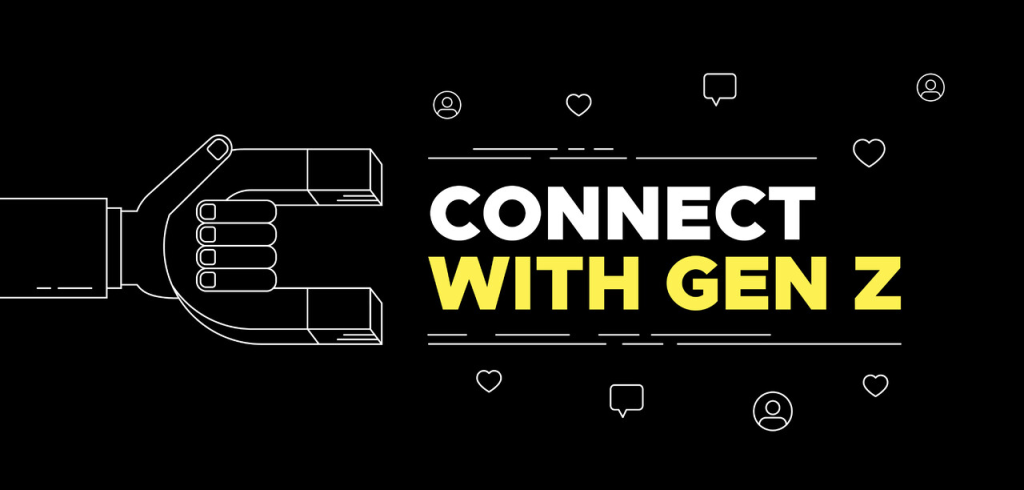Gen Z, born between the mid-1990s and early 2010s, is a generation defined by digital fluency and a strong focus on authenticity, diversity, and purpose-driven values. For brands aiming to resonate with this demographic, traditional advertising falls short. Instead, influencer marketing has become a powerful tool, enabling brands to build trust and engage authentically with this younger audience.

This article explores how brands are leveraging influencers to connect with Gen Z effectively, focusing on authenticity, values alignment, and community building.
The Importance of Influencer Marketing for Gen Z
Gen Z’s skepticism toward traditional advertising is notable. They are more likely to engage with authentic recommendations from influencers who align with their interests and values than with glossy, scripted ads. About 50% of Gen Z trust influencer recommendations, making influencers a vital bridge between brands and younger consumers. Influencers act as relatable advocates who introduce new products and ideas in a way that feels personal and genuine.
Strategies for Connecting with Gen Z Through Influencers
1. Prioritize Authenticity
Gen Z values unfiltered and transparent content. They gravitate toward influencers who share personal stories, admit vulnerabilities, and offer genuine product recommendations. Brands working with influencers who embody authenticity foster deeper emotional connections with their audience.
For example, beauty brands collaborating with influencers who discuss their skincare journeys—not just the end results—highlight relatability and honesty, strengthening trust with followers.
2. Focus on Short-Form Video Content
Platforms like TikTok and Instagram Reels dominate Gen Z’s social media habits. Short, engaging videos are particularly effective for grabbing their attention. Influencers who create visually appealing and entertaining content, such as tutorials, challenges, or behind-the-scenes looks, can amplify a brand’s reach exponentially.
3. Align with Social Causes
Social responsibility is critical to Gen Z. Influencers who advocate for sustainability, inclusivity, or mental health awareness often resonate with this generation. Partnering with influencers passionate about such causes allows brands to showcase their alignment with Gen Z’s values, building credibility and loyalty.
For instance, a sustainable fashion brand working with eco-conscious influencers creates an impactful narrative around slow fashion and ethical practices.
4. Embrace Diversity and Representation
As the most diverse generation yet, Gen Z expects to see influencers and brands reflecting their world’s inclusivity. Collaborating with influencers of varied backgrounds—ethnicities, genders, body types, and abilities—shows that a brand values individuality and representation.
5. Build Communities
Gen Z prefers to feel part of something larger than themselves. Influencers play a key role in fostering digital communities where followers can connect over shared interests. This sense of belonging drives loyalty and encourages engagement. Brands can create campaigns that involve followers in meaningful conversations, polls, or challenges, fostering deeper connections.
6. Leverage Micro-Influencers
Micro-influencers, with smaller but highly engaged audiences, are particularly effective for targeting Gen Z. These influencers often have a closer connection with their followers, making their recommendations feel more trustworthy and relatable. Brands using micro-influencers can achieve higher engagement rates and build lasting relationships with niche communities.

Why These Strategies Work
Gen Z’s buying habits are deeply influenced by their pursuit of truth, values alignment, and a preference for peer-to-peer recommendations. Influencers, as digital peers, provide the authenticity and relatability this generation seeks. By integrating influencers into campaigns that emphasize these qualities, brands can achieve meaningful engagement and drive both trust and loyalty.

Final Thoughts
Influencer marketing is more than a trend; it’s a necessity for brands aiming to connect with Gen Z. By prioritizing authenticity, aligning with social values, embracing diversity, and fostering community, brands can leverage influencers to build lasting relationships with this influential generation. In a world where connectivity and trust define brand success, influencers are the key to bridging the gap between brands and Gen Z.
For brands willing to adapt and collaborate authentically, the opportunity to create meaningful impact and loyalty with Gen Z is immense.

